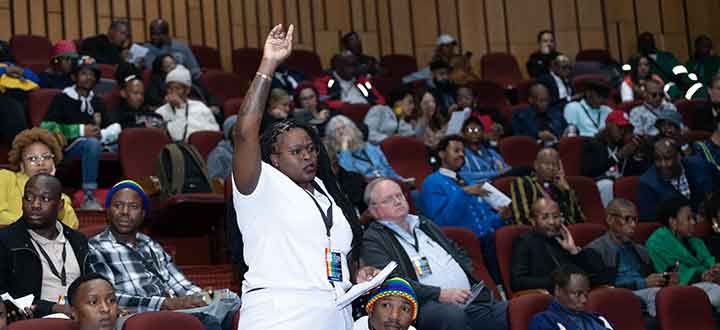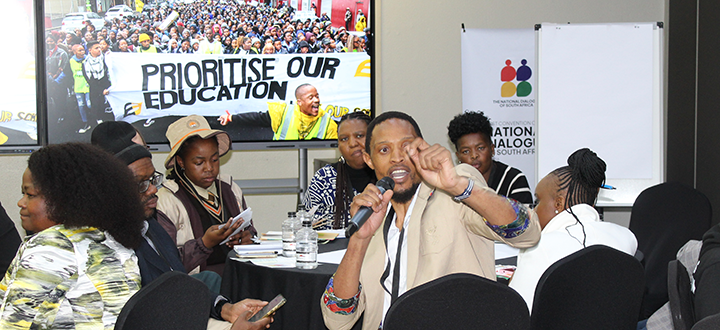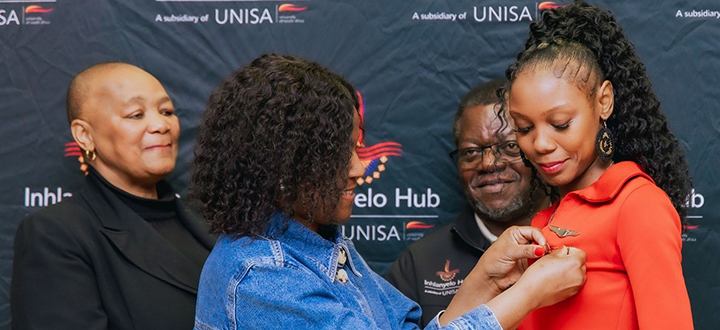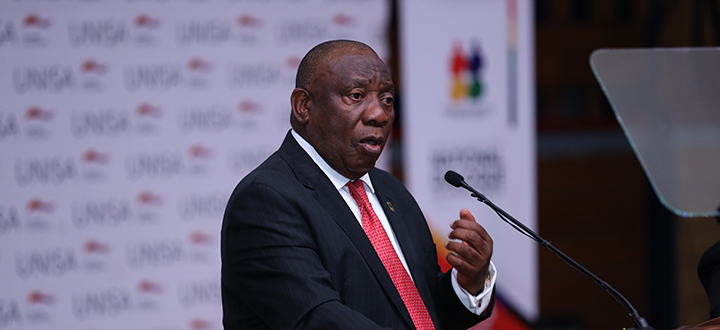News & Media
Completing the emancipation of the continent
On 28 October 2016, the respected French newspaper Le Monde published a list of those they see as the ten greatest minds on decolonisation and decoloniality today. Numbered among this prestigious group is none other than Unisa’s Prof Sabelo J Ndlovu-Gatsheni, Head of the Archie Mafeje Research Institute.
The title of the article says it all: Ten African thinkers who want to complete the emancipation of the continent: Portraits of the most prolific intellectuals in the renewal of ‘decolonised’ African thinking (Les dix penseurs africains qui veulent achever l’émancipation du continent: Portraits des intellectuels les plus féconds dans le renouveau d’une pensée africaine « décolonisée »).
The other thinkers acknowledged are the Ghanaian Kwame Anthony Appiah, the French Moroccan Ali Benmakhlouf, Cameroonian Jean-Godefroy Bidima, the Senegalese Souleymane Bachir Diagne, the Congolese French and Italian Nadia Yala Kisukidi, Cameroonian Achille Mbembe, the Franco-Cameroonian Leonora Miano, the Togolese Kako Nubukpo, and the Senegalese Felwine Sarr.
Speaking of his inclusion in this prestigious “group of ten”, Ndlovu-Gatsheni said that he was happy to see that the work being done from Africa with the intention to contribute to the liberation of the continent and its people was reaching the rest of the world and was being recognised in the manner Le Monde Afrique had done.
“It is intriguing that Le Monde Afrique is a leading French newspaper and is acknowledging and recognising African scholars on the continent and in the diaspora, because France is one of the countries that had a big empire and continues to keep a strong foothold in the so-called Francophone Africa—a subject that as a Decolonial thinker and theorist is of much concern as we struggle to liberate Africa from coloniality.”
Ndlovu-Gatsheni added the rider that “for those who thought that doing work on colonialism and coloniality is part of simple protest scholarship focused on a system that has been dismantled, my advice is for them to wake up from slave and colonial mentality and read the current student archive cascading from #RhodesMustFall and #FeesMustFall to realise the reality of coloniality”.
Understanding Africa from ‘inside’ and ‘outside’
Speaking of his studies, Ndlovu-Gatsheni said that he had been researching and writing on the question of liberation of Africa from the visible and invisible snares of what Kwame Nkrumah termed ‘neo-colonialism’.
“I have also been concerned about how Africa is read and interpreted from ‘outside’ due to what Mahmood Mamdani termed ‘writing history by analogy’. I have been interested in what Archie Mafeje described as understanding Africa from the ‘inside’ ever since my graduate studies.
Ndlovu-Gatsheni’s PhD, under the supervision of the leading Africanist historian Professor Terence Osborne Ranger (T O Ranger, as he was known), was on the pre-colonial history of the Ndebele speaking people, in particular their socio-political-economic as well as cultural ideological history prior to colonisation. He said that his interest had been to find out how the people of Africa had organised their societies, how they governed themselves, their notions of power and politics, rights and entitlements, justice and gender relations, as well as overall values that underpinned our lives.
Reaching beyond the empire
“Building on this research interest,” he said, “I expanded my search into understanding colonial encounters and the long-term consequences of the impact of colonialism. My research led me to embrace the epic school on colonialism that understands it not as an event or episode but as a structural and systemic project that underpinned the unfolding of Euro-North American-centric modernity whose expansion across the globe took the form of re-definition of being human in racial terms, enslavement of those whose humanity was questioned, and colonisation of those spaces inhabited by those whose humanity was questioned. Thus for the past decade my research has been on coloniality and decoloniality.”
Ndlovu-Gatsheni pointed out that even in a metropolis like Paris, there was a realisation and acknowledgement of realities of coloniality and the need for decolonisation of power, knowledge and being. “While we are not seeking recognition by the empire, I am happy that my intellectual work is not enclosed in monologues within Africa but is read within the empire.” He said that this was important because the Decolonial demand was for the empire to deimperialise itself if genuine Decolonisation were to take place and if a new humanism free of race and racial hierarchisation of being was to be realised.
“I take this honour as a collective good with the Africa Decolonial Research Network (ADERN) that I formed in 2011 and my collaborators in the Decoloniality struggle, particularly Professor Ramon Grosgoguel and Nelson Maldonado-Torres as some of the most unwavering Decolonial thinkers and activists; and colleagues at the Archie Mafeje Research Institute and at the Change Management Unit, from which I am now pushing the decolonisation of the very idea of the university, its cultures, epistemology, curriculum and pedagogy, as well as access to education that is decolonised and relevant.
 |
|
Major publications
On top of this, he has published over 50 journal articles and has over 50 book chapters in international journals and peer-reviewed books. |
Publish date: 2017-02-14 00:00:00.0


 Road-mapping the National Dialogue
Road-mapping the National Dialogue
 Unisa's book boffins clinch debate victory over UJ
Unisa's book boffins clinch debate victory over UJ
 Education in the spotlight at National Dialogue
Education in the spotlight at National Dialogue
 Women drone pilots: opportunities and hope for a transformed industry
Women drone pilots: opportunities and hope for a transformed industry
 Ramaphosa reaffirms that National Dialogue belongs to all South Africans
Ramaphosa reaffirms that National Dialogue belongs to all South Africans